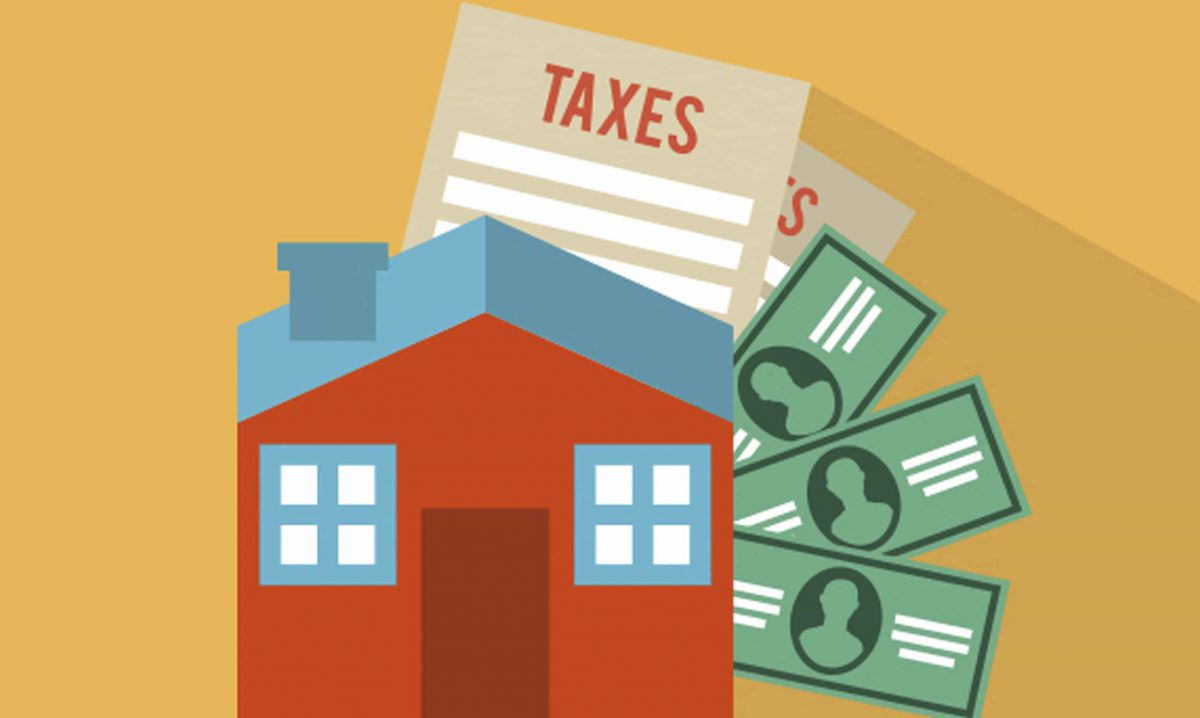Owning a home is a big financial responsibility, and it’s one of the largest investments you’ll probably ever make. Knowing the tax deductions and credits available to homeowners can help ensure your big investment pays you back a bit at tax time.
“Many homeowners miss out on a lot of deductions every year because they aren’t aware of all the savings opportunities available to them,” says Josh Zimmelman, president of Westwood Tax and Consulting.
These tax tips could help you make the most of the many tax breaks for homeowners and maximize any income tax refund you may be owed.
1. Save your tax records
Here’s one tax tip for homeowners: Once you take advantage of all the available tax benefits you’re able to claim in the current tax year, hold onto the documentation for those expenses.
“You never know when you might get audited,” Zimmelman says. “It’s important to have the documentation to back up your deductions.”
The law requires that you keep all the records you use to file your tax returns for three years from the date a return was filed. That’s typically how far the IRS goes back when doing an audit. But keep in mind that the IRS can go back further (usually no more than six years back) if it identifies a substantial error in a return.
2. Make energy-efficient updates
Adding a solar energy system to your home is not only good for the environment — it can also be good for your tax refund. The IRS allows you to take a tax credit worth 30% of the cost of installing a solar energy system.
If you’re thinking about holding off on taking advantage of this federal tax credit, don’t wait too long. The credit amount for residential improvements decreases to 26% in the year 2020, and then to 22% in 2021, after which it’s set to go away entirely.
3. Stay organized
Many of the federal income tax deductions or credits you can take as a homeowner require you to keep detailed records of your home-related expenses. Start saving receipts and other information right away — don’t wait for tax time to roll around.
“If you take a few minutes to set up an organization system for your tax paperwork and financial records, it should be quick and easy to maintain,” Zimmelman says.
To stay organized, keep hard copies of all your financial documents and receipts. Or if you’d rather go paperless, you can scan and store your documents digitally.
4. Hold onto home improvement receipts
If you make any improvements to your home, the expenses aren’t deductible for the current tax year. But when you sell the home in the future, they can help lower your tax burden then.
That’s because you can add home improvements expenses to your adjusted basis. This is generally what you paid to buy the house, plus the cost of construction, renovation or other improvements you’ve made, minus any losses you’ve experienced from damage to the home.
For the tax year in which you sell the home, your taxes on the sale are based on the sale price plus any concessions you get from the seller (such as them paying closing costs) minus your selling expenses. If the amount you gain from that equation is higher than your adjusted basis, you have a capital gain on the sale. So the higher your adjusted basis, the less taxes you may have to pay on your profit from the sale.
5. Track your home office expenses
If you’re self-employed and work from home, you may be able to deduct some of the expenses you incur for your business use of your home.
“Not every person who works from home can claim a home office,” Zimmelman says. “The home office must be used regularly and exclusively for business and be the primary site of the business.”
Because tax reform suspended certain deductions, including unreimbursed employee expenses (with some exceptions), until Dec. 31, 2025, you can’t take a home office deduction if you work from home as an employee.
Types of expenses you can deduct include the actual expenses you incur for the home office and depreciation for the portion of the home used.
6. Think ahead about deduction options
Deductions can help you lower your total tax obligation by reducing your taxable income. For the 2019 tax year, the federal standard deduction is $24,400 if you’re married filing jointly, $12,200 if you’re single or married filing separately, and $18,350 if you’re filing as head of household.
As a homeowner, though, you may have enough in eligible expenses to itemize your deductions. If those itemized deductions add up to more than the standard deduction, you could lower your tax bill even more.
Eligible expenses could include the following:
- Charitable contributions — If you made a tax-deductible donation to a qualified charity, you can add it to your total itemized deductions. In most cases, you’re allowed to deduct cash contributions that equal up to 60% of your adjusted gross income.
- Medical expense deduction — You may be able to write off some medical expenses that insurance didn’t pay for.
- Home mortgage interest — If you took out a mortgage on or after Dec. 15, 2017, you may be able to take a mortgage interest deduction on up to $750,000 of mortgage debt for your primary residence. If your mortgage predates Dec. 15, 2017, the limit is $1 million. Interest paid on your home equity loan or line of credit may also be deductible if you used the money to buy, build or substantially improve the house that secures the loan.
- State and local taxes — Real estate taxes can be high in some areas, but you may be able to deduct some (or all) of your property taxes. For federal tax returns, the law allows taxpayers to deduct up to $10,000 ($5,000 if married filing separately) of the total of your state and local property taxes plus either income taxes or state and local sales taxes.
Keep in mind that the Tax Cuts and Jobs Act of 2017 limited the amount of certain deductions, which may make it harder to come up with an itemized deduction total that will exceed your standard deduction amount. In that situation, itemizing might not give you the most tax benefit. That said, if you have deductible expenses that exceed your standard deduction amount, there’s no longer an income-based limit on the amount of itemized deductions you’re allowed to claim (though there may be other limitations).
Bottom line
Owning a home can be expensive — but fortunately, the tax breaks can help make up for the extra costs. As a homeowner, it’s critical to know which deductions and credits you qualify for and to make sure you maximize them to your benefit. Using Credit Karma Tax to file your taxes for free, and following these tax tips for homeowners could help.


